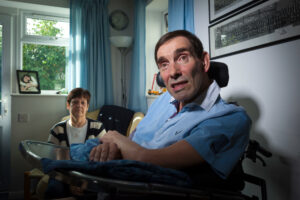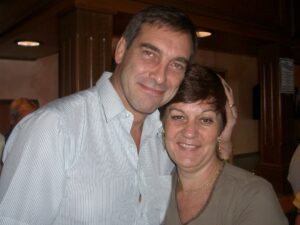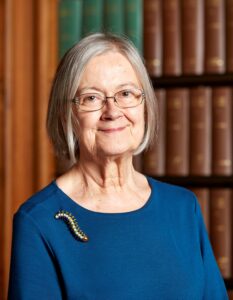 Today marks ten years since the pivotal ruling in R (Nicklinson) v Ministry of Justice, where the Supreme Court concluded that any decision to change the law on assisted dying is for parliament. My Death, My Decision commemorates the determination of the Nicklinson family, Paul Lamb and all advocates who have championed the right to die. We urge the next parliament to address this crucial issue.
Today marks ten years since the pivotal ruling in R (Nicklinson) v Ministry of Justice, where the Supreme Court concluded that any decision to change the law on assisted dying is for parliament. My Death, My Decision commemorates the determination of the Nicklinson family, Paul Lamb and all advocates who have championed the right to die. We urge the next parliament to address this crucial issue.
Tony Nicklinson experienced a devastating stroke that left him with Locked-in Syndrome, paralysing him from the neck down with his only form of communication being through eye movements. Describing his existence as a “living nightmare,” he campaigned passionately for the right to ask for help to end his life. After the High Court ruled against him in 2012, Tony died two weeks later from pneumonia, having refused food and treatment.
 Jane Nicklinson, Tony’s widow, continued the legal battle with Paul Lamb, a former builder and father of two, who was paralysed from the neck down in 1990. They took the case through the Court of Appeal and ultimately to the Supreme Court. On 25 June 2014, the Supreme Court ruled against the Nicklinsons and Paul Lamb with a notable dissent from two judges, Lady Hale and Lord Kerr, who would have been willing to make an order that our existing laws were incompatible with Tony’s rights under the Human Rights Act.
Jane Nicklinson, Tony’s widow, continued the legal battle with Paul Lamb, a former builder and father of two, who was paralysed from the neck down in 1990. They took the case through the Court of Appeal and ultimately to the Supreme Court. On 25 June 2014, the Supreme Court ruled against the Nicklinsons and Paul Lamb with a notable dissent from two judges, Lady Hale and Lord Kerr, who would have been willing to make an order that our existing laws were incompatible with Tony’s rights under the Human Rights Act.
Lady Hale and the Nicklinson family are set to speak at our event on 26 June. Lady Hale will share her reflections on the Nicklinson case and its lasting influence on the conversation about assisted dying.

The Right Honourable Baroness Hale of Richmond said:
“Ten years ago, the Supreme Court decided the cases of Tony Nicklinson and Paul Lamb, incurably suffering but not terminally ill men who wanted and needed help to take their own lives in the time and manner of their choosing. Five of the nine Justices held that the Court could make a declaration that the current law banning assisted suicide was incompatible with the human rights of people like Tony Nicholson and Paul Lamb, but three of those five said that Parliament should be given the opportunity of putting things right first (the other four said that it was a matter for Parliament alone).
But Parliament has not put things right, despite all the evidence that the public would support a change in the law. And such proposals as have been debated are limited to terminally ill people with only a few months to live. They would not help people like Tony Nicklinson and Paul Lamb. Of course, there must be proper safeguards to make sure that their decisions are freely made. But it is cruel and inhumane to force them to go on living against their will. That is why I support My Death, My Decision.”
Trevor Moore, Chair of My Death, My Decision, said:
“25th June will be a moment for us to honour Tony Nicklinson and Paul Lamb, fearless advocates for the right to a compassionate death. Their tragic conditions were not terminal, highlighting the injustice of recent parliamentary Bills that, if passed, would have restricted assisted dying to those who are terminally ill with a prognosis of six months or fewer.
“We look forward to hearing from Lady Hale on this historic anniversary. Parliament has long avoided addressing assisted dying. It is our hope that the forthcoming parliamentary session will allow a full debate and vote on a law that we know has overwhelming public support.”
Notes:
Members of the MDMD team, as well as individuals affected by the current law on assisted dying, are available for interview upon request
For further comment or information, media should contact Nathan Stilwell at nathan.stilwell@mydeath-
Media can use the following press images and videos, as long as they are attributed to “My Death, My Decision”.
My Death, My Decision is a grassroots campaign group that wants the law in England and Wales to allow mentally competent adults who are terminally ill or intolerably suffering from an incurable condition the option of a legal, safe, and compassionate assisted death. With the support of over 3,000 members and supporters, we advocate for an evidence-based law that would balance individual choice alongside robust safeguards and finally give the people of England and Wales choice at the end of their lives.

